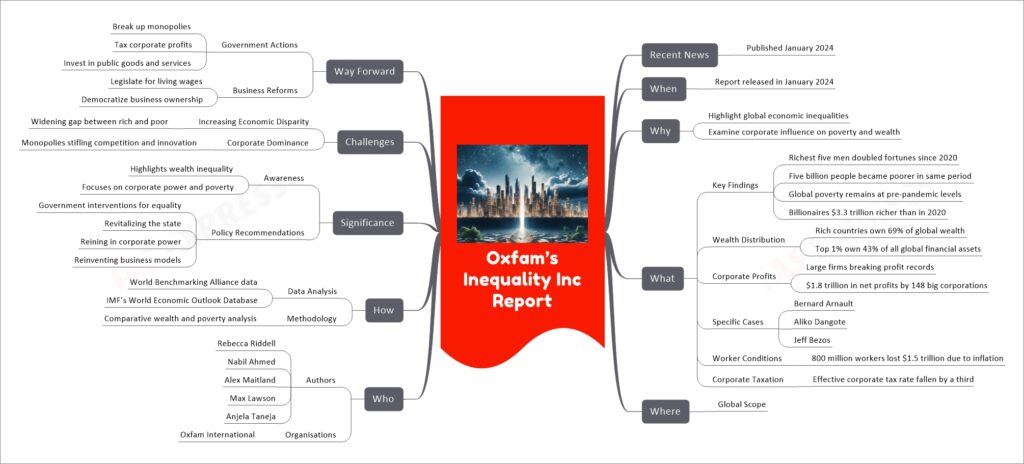Oxfam’s Inequality Inc Report

The Oxfam Inequality Inc Report, published in January 2024, aims to highlight the stark global economic inequalities and the impact of corporate power on poverty and wealth distribution. The report reveals that since 2020, the richest five men in the world have doubled their fortunes, while nearly five billion people have become poorer. It also sheds light on the disproportionate wealth distribution, where the richest 1% globally own a substantial portion of all financial assets.
The report critiques the role of large corporations in exacerbating these inequalities through practices like tax dodging and profiteering, and the challenges faced by workers, with 800 million workers losing significant income due to inflation. The authors call for government interventions to reduce inequality, including revitalizing the state, reining in corporate power, and reinventing business models. The report’s significance lies in raising awareness about wealth inequality and offering policy recommendations for a more equitable world. However, it also underscores the challenges of increasing economic disparity and corporate dominance. The way forward, as suggested by the report, involves critical government and business reforms to achieve greater equality and economic justice.
If you like this post, please share your feedback in the comments section below so that we will upload more posts like this.

